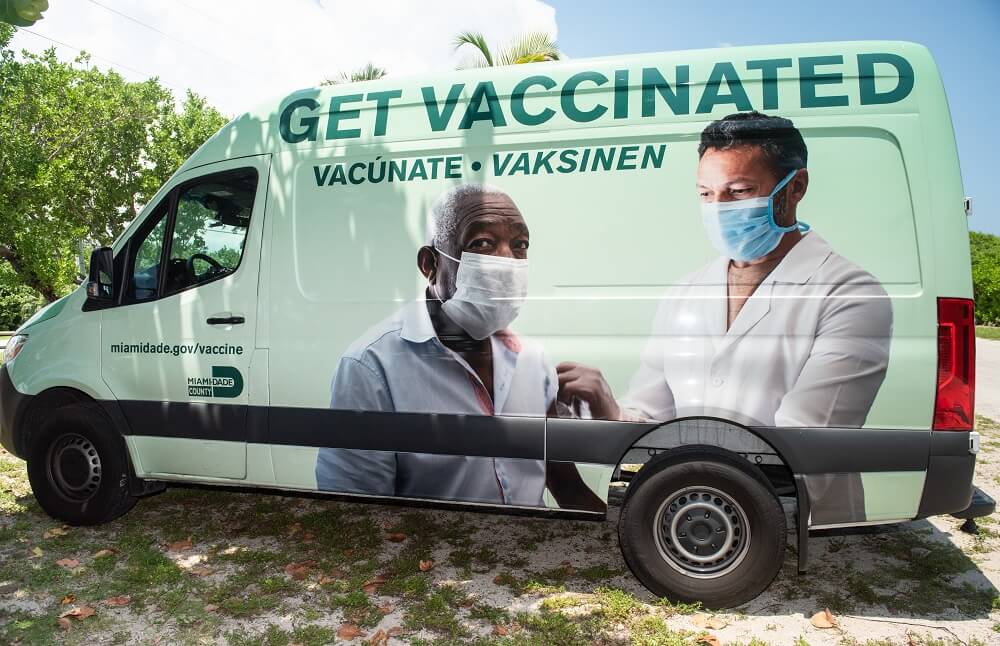1.3: Take comprehensive mobile services to communities
Issue Statement and Context
Homebound older adults, and residents with mobility challenges or other difficulties, sometimes face great challenges in connecting with the services they need. The issue is often aggravated with technology challenges for the older adult population. The best place to reach this population, and many other hard to reach populations, is often at their doorstep.
The County operated this way to deliver COVID-19 information and other services (e.g., testing and vaccinations) by deploying outreach teams directly to people's homes in several communities. The Mayor has also hosted "Walking One-Stops" and the Thrive305 survey included a large door-knocking effort that successfully worked with community-based partners to deploy teams of canvassers to increase access to the survey to traditionally underrepresented communities.
There are opportunities to learn from those efforts and others, including the Miami-Dade Public Library System's Mobile Libraries and the Community Action and Human Services Department's support for older adults for the past 20 years via Meals on Wheels, Chore, Homemaking and Home Care, and the Public Housing and Community Development (PHCD) Department's long tradition of engaging residents at their doorsteps.
The County operated this way to deliver COVID-19 information and other services (e.g., testing and vaccinations) by deploying outreach teams directly to people's homes in several communities. The Mayor has also hosted "Walking One-Stops" and the Thrive305 survey included a large door-knocking effort that successfully worked with community-based partners to deploy teams of canvassers to increase access to the survey to traditionally underrepresented communities.
There are opportunities to learn from those efforts and others, including the Miami-Dade Public Library System's Mobile Libraries and the Community Action and Human Services Department's support for older adults for the past 20 years via Meals on Wheels, Chore, Homemaking and Home Care, and the Public Housing and Community Development (PHCD) Department's long tradition of engaging residents at their doorsteps.
Detailed Action Summary
Bring County services and information directly to residents by bringing mobile County No Wrong Door Street Teams or Goodwill Ambassadors of government representatives to people's doorsteps on a regular basis.
- Compile the lessons learned from deployment of COVID-19 testing and vaccination outreach teams to people's doorsteps, and from the Mayor's "Walking One-Stops" to define more precisely who needs to be reached through this model.
- Work to incorporate No Wrong Door liaisons into the workflow of mobile service delivery across County departments.
- Work with PHCD to pilot new ways to deliver an expanded set of services to public housing residents at their doorsteps.
- Work with the Miami-Dade Fire Rescue Department to pilot new protocols for how County staff and social workers follow up the resolution of the emergency incident.
- Use this model of service delivery to additionally engage people civically, informing them about opportunities to become and remain engaged in County civics, and inquiring about their needs to better connect them to a wide range of services.
- Create opportunities to receive feedback from the departments of the services that were delivered, including their timeliness, to increase the public's trust in County services. Capture data from pilots and other deployments to assess program efficiency.

